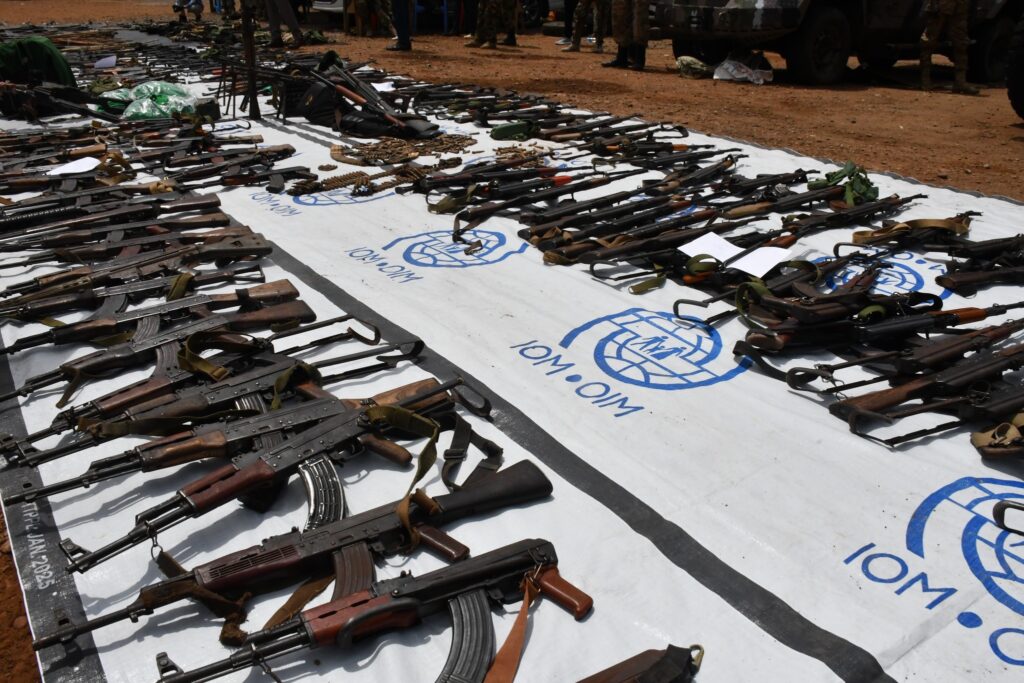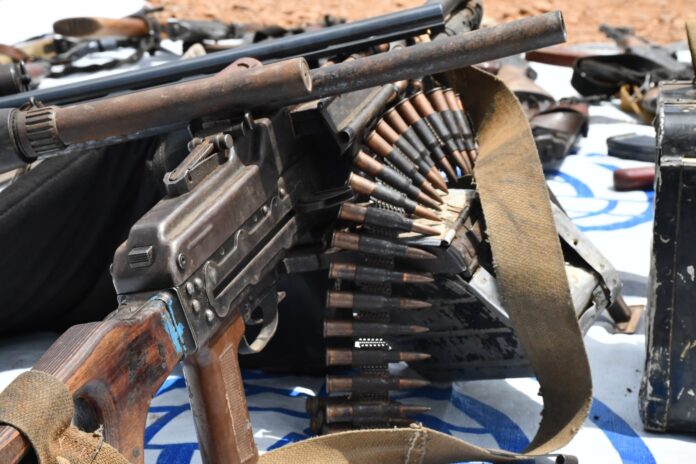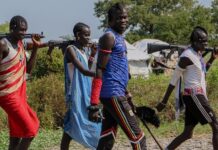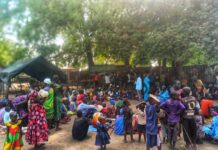Joint Operation Forces has recovered over 300 firearms including 64 pistols from households in the capital, Juba, as part of an ongoing disarmament campaign aimed at curbing armed violence and strengthening public safety.
The disarmament drive, launched in 2023, seeks to collect illegal firearms from civilians across the country. Authorities say the initiative is part of a broader national effort to reduce crime, promote stability, and build confidence in state security institutions.
This month, the Joint Operation Forces reported significant progress after confiscating more than 230 assorted weapons in Juba. The seized items included machine guns, pistols, ammunition, arrows (locally known as Danga), knives (Sakakin), and pangas.
Speaking at a press briefing in Juba, the South Sudan People’s Defense Forces (SSPDF) Operation Commander, Lt. Gen. Koang Thou, said the ongoing operation reflects the government’s commitment to “restoring peace, stability, and public confidence in the security sector.”
Lt. Gen. Koang detailed the origin of the collected firearms, noting that 49 belonged to the SSPDF, 40 to National Security, 35 to the Police, 15 were numberless, 68 had no identifiable ownership, and 22 were from unconfirmed units — bringing the total to 230, in addition to 64 pistols.
He explained that “unconfirmed units” refer to individuals wearing military uniforms who do not belong to any recognized security unit but claim to be soldiers.
Meanwhile, Inspector General of Police Gen. Abraham Manyuat Peter commended the Joint Operation Forces for their efforts, emphasizing that all legitimate soldiers must keep their weapons at their respective units.
“Anyone keeping a gun at home is considered a criminal,” Gen. Manyuat warned. “This operation will continue until all illegal weapons are removed from Juba.”

He also condemned a group known as the Red Belt, describing it as a criminal organization.
“There is no reason for any civilian group to take the law into its own hands,” he said. “Protection of citizens is the duty of the state.”
Chief of Defense Forces Gen. Paul Nang Majok directed the operation commanders not to return any firearms that are unregistered or untraceable unless their owners formally join the army.
“Unknown guns should not be given back,” Gen. Nang stated. “Anyone found carrying an unconfirmed weapon must be identified and, if willing, integrated into a recognized military unit.”
He also labeled the Red Belt group as “criminal actors destroying the country under the guise of community protection.”
“Anyone who wants to serve should join the army. Those who do not should surrender their weapons and live as civilians,” he added.
Gen. Nang further instructed investigators to trace the origins of seized machine guns — particularly the LG model — which he described as “one of the most dangerous weapons” that should never be stored in civilian homes.
The Chief of Defense praised the ongoing operation for its peaceful approach and reiterated the government’s determination to end civilian gun ownership.
“For South Sudan to move forward, we must ensure that guns are no longer in the hands of civilians,” he said. “Disarmament is not punishment — it is protection for our people and a foundation for lasting peace.”
Despite its progress, the campaign faces challenges. Some residents have expressed fears that surrendering their weapons could leave them vulnerable to attacks, especially in areas still affected by local conflicts.
However, security analysts view the recent seizure as a major milestone. If sustained, they say, the campaign could significantly contribute to long-term peace and development in the world’s youngest nation.
As South Sudan continues its path toward recovery, national disarmament remains a crucial step in ending years of violence and restoring hope among communities scarred by decades of conflict.





